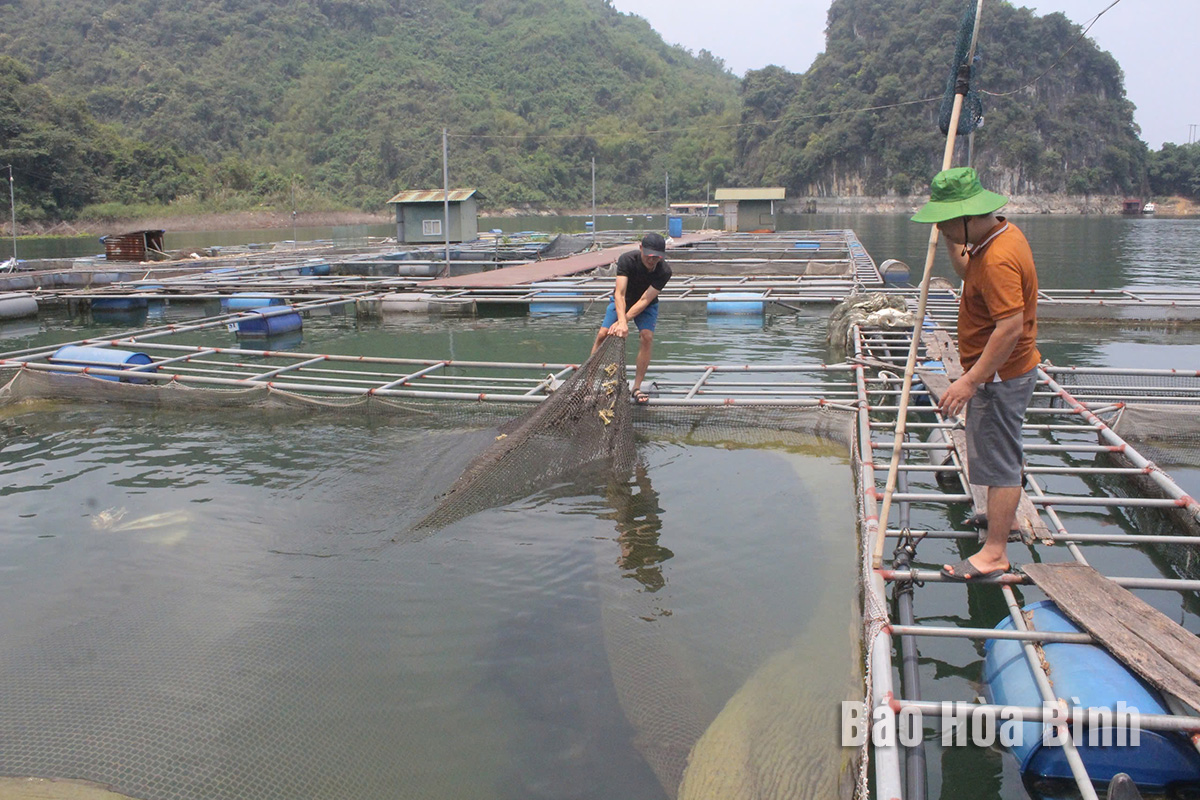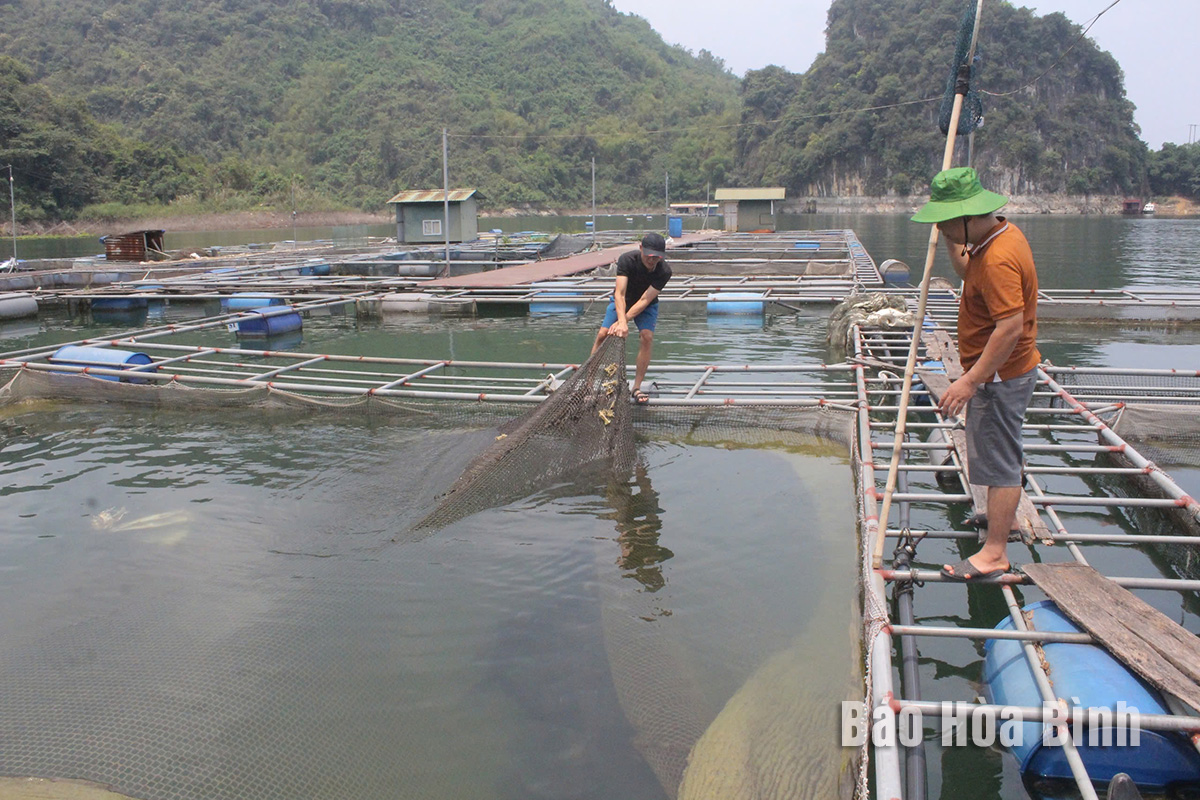
On November 7, 2022, the Hoa Binh provincial People’s Committee issued Action Plan No. 212/KH-UBND on the implementation of the national programme on aquaculture development for the 2021 - 2030 period in the locality. Improvements have been recorded thanks to programme implementation over the last more than two years.
Cage fish farming has developed fast in Thung Nai commune, Cao Phong district, over the past years.
Dang Thi Duyen, deputy head of the province’s sub-department of fisheries, said the plan looks to develop efficient and sustainable aquaculture actively adapting to climate change; improve the productivity, quality, value, and competitiveness of aquaculture products; meet the domestic market’s demand and work towards export; and effectively tap into local aquaculture advantages and potential.
It targets an annual aquaculture output of 14,000 tonnes and the fisheries sector’s annual growth rate of 6.5% by 2030. It also aims to create jobs and raise income for locals to contribute to poverty reduction, socio-economic stability, national defence, and security in Hoa Binh.
To carry out the plan, in 2022, the provincial Department of Agriculture and Rural Development selected, supplemented, and replaced breeding fish, including carp, grass carp, and mud carp, she said.
Every year, the fisheries sector conducts monitoring of the aquaculture environment to serve management, give production directions, and issue timely warnings and response guidance when the farming environment worsens so as to minimise environment-related losses and sustainably develop aquaculture.
Over the last couple of years, many farming models applying the VietGAP standards and sci-tech advances have taken shape and multiplied, thereby raising the added value, cutting production cost, reducing post-harvest losses, and contributing to the fisheries sector’s sustainable development.
During 2022 - 2024, the sector’s production value grew 6.5% annually, reaching the set target. However, Duyen said, it is still necessary to conduct surveys and build a plan on the arrangement of cages in concentrated aquatic farming zones in connection with tourist sites in the vicinity of the Hoa Binh lake, thereby improving the programme’s effectiveness and sustainably developing aquaculture in the province.
According to data from the Hoa Binh Provincial Party Committee, the industrial production index for the first six months of 2025 is estimated to have increased by 20% compared to the same period last year. This marks the highest year-on-year growth rate for this period since 2020.
In the first six months of 2025, Hoa Binh province’s export turnover was estimated at 1.145 billion USD, marking an 18.11% increase compared to the same period in 2024. Import turnover was estimated at $ 804 million, a 17.15% increase, which helped the province maintain a positive trade balance.
The lives of the ethnic minority farmers in Tan Lac district have gradually improved thanks to the new directions in agricultural production. This is a testament to the collective strength fostered through the professional associations and groups implemented by various levels of the district’s Farmers’ Union.
With the motto the "product quality comes first,” after nearly one year of establishment and operation, Muong village’s Clean Food Agricultural and Commercial Cooperative, located in Cau Hamlet, Hung Son Commune (Kim Boi district), has launched reputable, high-quality agricultural products to the market that are well-received by consumers. The products such as Muong village’s pork sausage, salt-cured chicken, and salt-cured pork hocks have gradually carved out a place in the market and they are on the path to obtaining the OCOP certification.
In the past, the phrase "bumper harvest, rock-bottom prices" was a familiar refrain for Vietnamese farmers engaged in fragmented, small-scale agriculture. But today, a new spirit is emerging across rural areas of Hoa Binh province - one of collaboration, organisation, and collective economic models that provide a stable foundation for production.
Maintaining growing area codes and packing facility codes in accordance with regulations is a mandatory requirement for agricultural products to be eligible for export. Recently, the Department of Agriculture and Environment of Hoa Binh province has intensified technical supervision of designated farming areas and packing facilities to safeguard the "green passport" that enables its products to access international markets.



